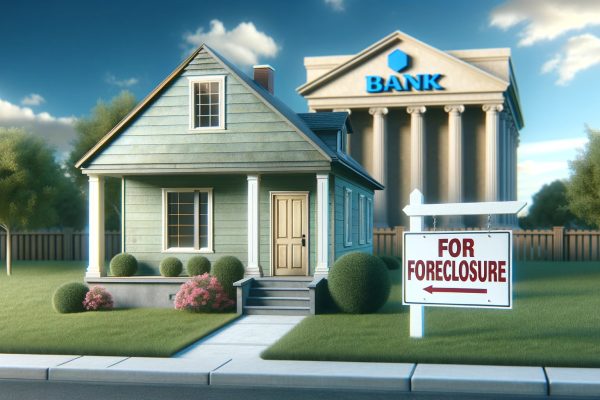Home>Finance>Foreclosure: Definition, Process, & How To Avoid


Finance
Foreclosure: Definition, Process, & How To Avoid
Published: November 26, 2023
Learn the definition and process of foreclosure, and discover effective strategies to avoid it. Stay informed about finance and protect your assets
(Many of the links in this article redirect to a specific reviewed product. Your purchase of these products through affiliate links helps to generate commission for LiveWell, at no extra cost. Learn more)
Foreclosure: Definition, Process, & How To Avoid
When it comes to financial matters, one topic that can bring a sense of fear and uncertainty is foreclosure. But what exactly is foreclosure? How does the process work, and most importantly, what can you do to avoid it? In this blog post, we’ll demystify foreclosure and provide you with valuable insights on how to navigate this challenging situation.
Key Takeaways:
- Foreclosure is a legal process that allows a lender to take possession of a property when the borrower fails to meet their mortgage obligations.
- The foreclosure process typically includes pre-foreclosure, auction, and post-foreclosure stages.
What is foreclosure?
Foreclosure is a legal process used by lenders to recover the outstanding balance of a loan when a borrower fails to make timely mortgage payments. It is a last resort option for lenders when all attempts to collect payments have failed. In such cases, the lender sells or takes possession of the property to recoup their losses.
What is the foreclosure process?
The foreclosure process generally consists of three main stages:
- Pre-Foreclosure: This stage begins when the borrower falls behind on mortgage payments. The lender typically sends a notice of default, giving the borrower a specific timeframe to make the overdue payments. During this stage, it’s crucial for the homeowner to communicate with the lender and explore options like loan modification or refinancing.
- Auction: If the borrower fails to resolve the outstanding payments during the pre-foreclosure stage, the property goes to auction. The auction is generally overseen by a foreclosure trustee or county sheriff, and the property is sold to the highest bidder. It’s essential to note that auction rules and procedures vary by state.
- Post-Foreclosure: Once the property is sold at auction, the former owner has to vacate it. At this stage, the lender takes possession of the property and may choose to sell it to recover the outstanding loan balance.
How to avoid foreclosure?
While foreclosure can be a distressing situation, there are steps you can take to avoid it:
- Open communication with your lender: If you’re facing financial hardship or struggling to make mortgage payments, it’s crucial to contact your lender as soon as possible. Many lenders offer options like loan modifications, forbearance, or repayment plans that can help you avoid foreclosure.
- Consider refinancing or loan modification: Refinancing your mortgage or seeking a loan modification can be viable solutions to reduce your monthly payments or adjust the loan terms.
- Seek housing counseling: Reach out to a HUD-approved housing counselor who can provide guidance and assistance in navigating your financial situation.
- Explore foreclosure prevention programs: In some cases, government programs like the Home Affordable Modification Program (HAMP) or the Making Home Affordable program may provide assistance and foreclosure alternatives.
Remember, taking proactive steps and seeking professional advice are crucial when facing foreclosure. While the process can be challenging, there are resources available to help you overcome financial difficulties and safeguard your home.














